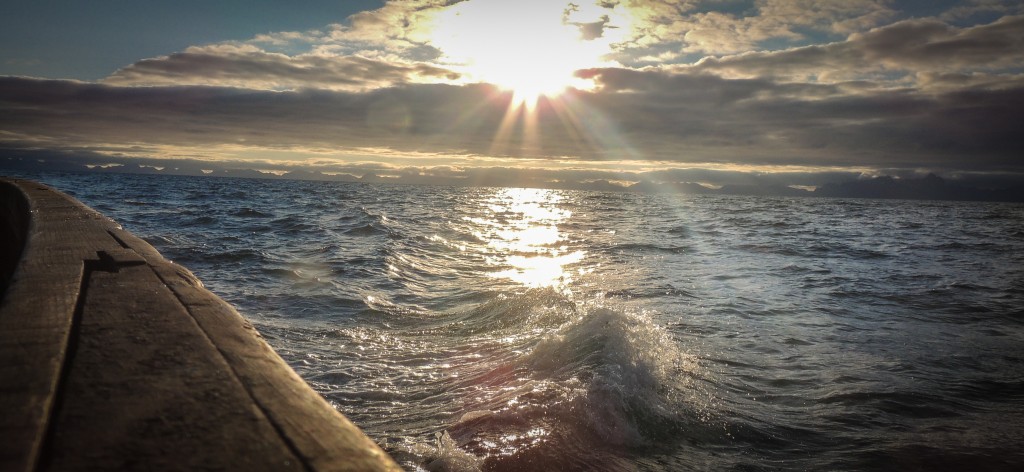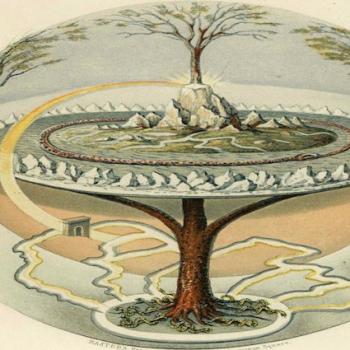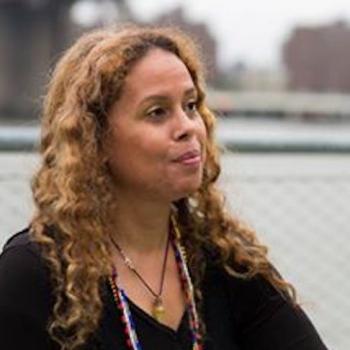Author’s note: this is based on the remarks I prepared for the plenary panel at Many Gods West 2016. While not all of what is in here was read off in discussion, partially because I prefer to adapt and adjust my thoughts when speaking publicly but also due to simple nervousness, this is a summation of what I presented and my thoughts on the future of polytheism. It is also influenced by discussions that have taken place since then.
Modern revived polytheism is a young and growing religious movement. This places all of us in a very unique position that bears with it tremendous responsibility. We are the formative generation of the many practices developing in the Americas, Europe, and Australia. What we do, how we shape our community, and the consequences of those actions will resonate down through the ages long after our mortal forms have rotted away and our bones have decayed to dust. As such we must take up this responsibility, recognize it, and strive to be the best people and example we can be not just for ourselves, our present, and our current community but also for those who will follow in our wake. If we, as a community and as a set of beliefs and practices, are to be relevant in every sense of the word we consider how it is our ideas matter in day to day life, what questions they pose regarding the society we live in, and most importantly how our decisions will impact our community now and a thousand years in the future.
This means two things: we must be willing to assess our Gods, our practices, and our ideas based on what they mean, in real terms, in the present moment and we should prioritize making our ideas relevant and meaningful in the modern day by providing answers for human and present needs with consideration for their future impact. Spirituality that divorces itself from the spiritual becomes nothing more than a nice idea at best and in worse cases a club brandished by the ambitious to shore up personal power bases and should be challenged.
This question of applicability in the modern world is a critical one. As any student of religion and spirituality will tell you such belief systems are not, ideally, confined to worship services and high holy days. They are meant to be a guide in all aspects of life by providing a framework for answers to existential questions and a source of comfort and strength in trying times. We do not need to have all of the answers or know all of the potential questions out there in addressing this question. After all achieving such a state is, effectively, impossible for anyone currently living on Earth or likely to live in the next thousand years. What I believe we should be doing is working to make our beliefs, ethics, and ideas as applicable to people in their everyday lives and discuss how they help in addressing the big questions in society.
One excellent example of this question of applicability in action comes from a ritual I attended in Berkeley officiated by Kristoffer Hughes of the Welsh Anglesey Order. He began the ritual by making a very clear point about his interpretation of Druid practice and its application in the present by saying (paraphrased), “We are not praying to the Welsh Mountains because we are not in Wales. We are speaking to the Redwood Trees because we are in Northern California.” There is very critical wisdom in this statement that, I think, applies to all forms of modern polytheistic practice. We cannot isolate ourselves in an ideal world that is sealed off from what is around is if we are truly seeking to build authentic practice founded on relationships with the land and Powers all around us. We should, instead, be looking for wisdom in where we are, what we’re doing, and how we are living.
To simply say polytheism means one believes in many discrete, defined deities and honors them in some fashion is not enough. We have to ask ourselves how this matters in daily life. Does this mean we have a different approach from a more monotheistic-influenced approach of assuming singular, objective answers? Do we approach life by taking into account many views and perspectives while seeking to find a clear understanding based on what is facing us? Polytheism and polytheistic spirituality should mean something more than having multiple statues on an altar, a different set of high holy days from mainstream society, and a different set of ritual forms.
People come to spirituality seeking answers and meaning. We need to provide more than, “Do X for Y Gods and listen to what they say.” We need to give seekers the means to live authentically and polytheistically on their own as autonomous individuals. We need to provide guidance that gives them the means to find their own answers, develop polytheistic practice in a way that is authentic for them, and build community that is self-sustaining. If anything is clear from history it is that seeking authoritarian control over spirituality and people’s beliefs is a surefire path to pain, dominance, and suffering by many for the sake of the few. We, as the formative generation, have the opportunity to avert this by focusing our efforts first and foremost on genuinely serving people’s spiritual needs.
This is not to say the Gods must be made to serve humanity. Demanding such from deity is highly unrealistic to say the least. What I instead argue is that those who are doing spiritual work, engaging in spiritual practice, and building spiritual community should be doing so with the needs of the participants in that community as their central concern. If in one’s work in service of the Holy Powers you succeed in alienating all those who seek to know and understand them, deny their basic human autonomy, or in other ways diminish them are you truly serving the Gods or are you serving your own ego? How can one make such a claim about beings who, in many of the cosmologies and mythoses we draw from, have engaged in truly awesome acts of creation including the forging of the planet we live on and the shaping of the stars?
Part of what is necessary to build such a community is developing a culture of honest critique, intellectual humility, and embracing a diversity of thought. Just as the Gods are many, nature innumerable in its diversity, and the Powers tremendous in their diversity our intellectual and cultural world should strive for similar breadth and depth. Knowledge and wisdom are not fixed quantities one can weigh, measure, and contain. They are constantly growing, changing, and adapting qualities that must be constantly assessed, tested, and challenged to prove their fitness. If we truly wish to live long as a practice we need to be capable of taking in criticism, resolving or when necessary accepting disagreement, and fostering diverse, inclusive thought.
For those who may be assuming such a stance is at odds with having a working spiritual practice I argue such a position of adaptation, challenge, and growth is perfectly in line with the world around us. Nature, its Powers, and the universe are not unchanging, fixed states of existence. They are dynamic, organic, and constantly in motion with change as the only true constant. All things that live grow, change, and die while setting the stage for new life after. Things as seemingly fixed and unchanging as mountains and oceans grow and shrink. Even the stars themselves age, die, and in their fiery ends contribute to new life, new cosmic development, and new forms.
Furthermore this matter of change, especially given the often ancient sources we draw inspiration from, presents a critical challenge. How should we, as polytheists who in many cases honor not just Gods but also the spirits of the land around us, respond to aspects of modern life that many take for granted? What should we have to say about consumerism, the commodification of natural resources, gender fluidity, racism and bigotry, or the state of human life in much of the world and the communities we live in? Should we simply accept what is or strive to achieve positive change? I do not have or wish to offer definitive, singular answers to these questions but we cannot simply leave these matters untouched if we are building belief systems that are meant to be guides for every aspect of our lives.
This is especially critical as we live in a time where the danger posed by religious fundamentalism to people, communities, and society at large has been made all too clear. People using religion to justify cruelty, domination, and discrimination have reared their heads across the globe leaving destruction and pain in their wake. Whether one points to Christian fundamentalists in the United States and across the planet, Islamists like Da’esh and other Wahhabi-influenced sects, or those wrapping themselves in the mantle of polytheism to disguise nakedly racist, bigoted, fascist agendas there is no question such fundamentalism poses a very real threat to the people and to the spiritual communities they claim to be a part of. We as a community must ensure this danger is decisively confronted and headed off if modern polytheism is to have a future worth speaking of. The alternative is, without question, too awful to consider acceptable in any fashion.
If spirituality does not give meaning, strength, and wisdom to its adherents people should ask why. If people are being asked to silence their conscience, subordinate their desires to the demands of the powerful, or in other ways suspend their autonomy against their better judgement that is a problem that must be challenged. If we are, as a practice, for ethical and practical reasons going to continue into the future we must be acting in a fashion that serves people, empowers them, and their needs in the here and now. We must be of service for those seeking answers, guidance, and support. Above all else we must remember the decisions and choices we make now will shape the future of our spirituality for the generations to come. We must do all we can to give them the best foundation to build on.


















